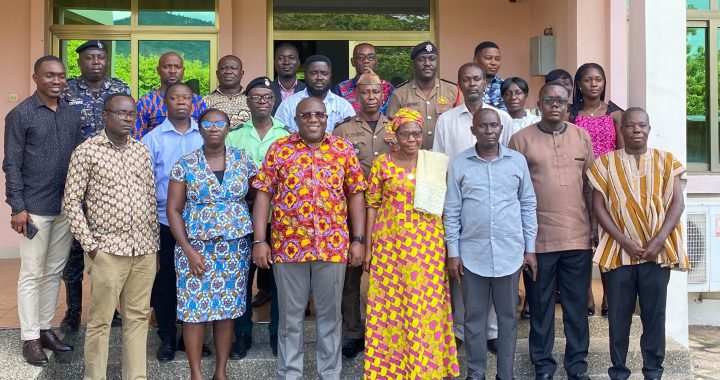On October 17th and 18th , 2024, the National Disaster Management Organization (NADMO), in partnership with the World Health Organization (WHO), organised a two-day Regional Flood Contingency Plan Development Workshop at the Eastern Regional Residency in Koforidua. The event aimed to strengthen the Eastern Region’s preparedness for flooding events and was attended by key stakeholders, including the Eastern Regional Coordinating Council (ERCC), the Environmental Protection Agency (EPA), Heads of Security Services, the Ministry of Food and Agriculture, and the Information Services Department, among others.
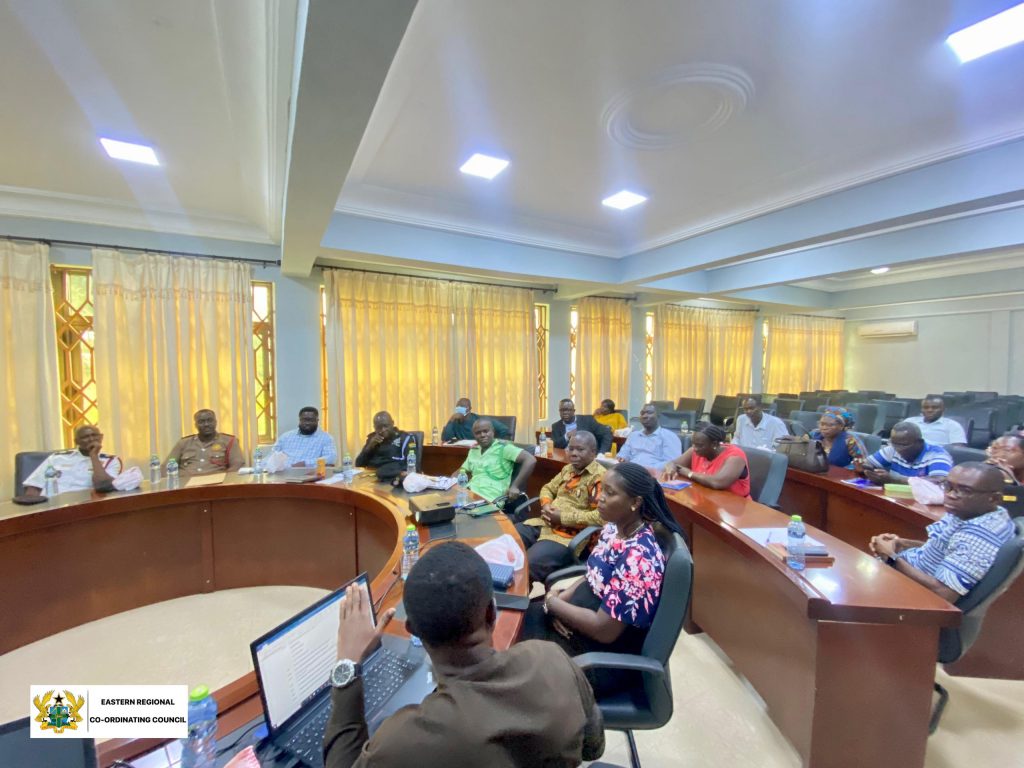
The workshop commenced with an opening remarks by Mr. Yaw Adu-Asamoah, the Regional Coordinating Director. In his address, he emphasized the importance of collaboration and the sharing of ideas among the various institutions present. “We are here to deliberate and share ideas on how we can develop a robust contingency plan that effectively addresses the flood issue, which encompasses many critical aspects,” he stated, highlighting the urgent need for a comprehensive approach to disaster management in the region.
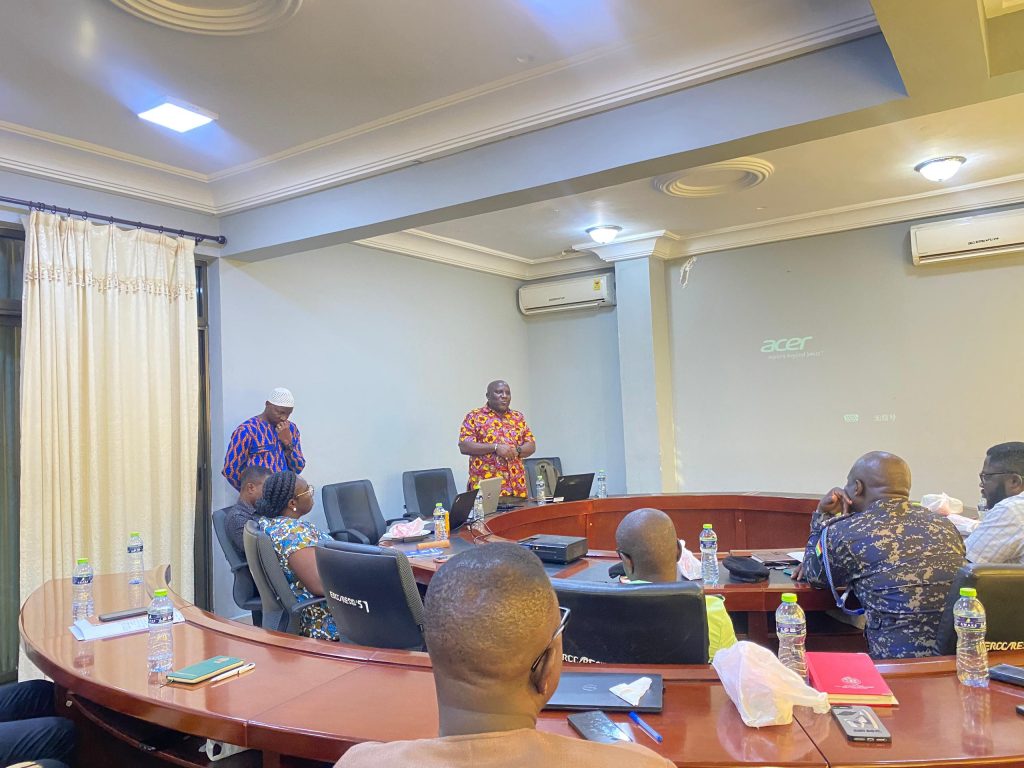
The Eastern Regional Minister, Hon. Seth Kwame Acheampong, pointed out the increasing frequency and severity of flooding in the region, which necessitates proactive measures to protect lives and property. “The Eastern Region has faced significant flooding challenges in recent years. It is essential for us to develop an working action plan that ensures we are prepared for such disasters,” he remarked, urging all stakeholders to commit to the collective responsibility of safeguarding communities.
Hon. Acheampong further stressed the need for inter-agency cooperation in flood management, calling for clear roles and responsibilities during emergencies. His insights reinforced the idea that a coordinated response is crucial for effective disaster risk reduction and community resilience.
Key Discussions and Outcomes
Throughout the two-day workshop, participants engaged in in-depth discussions on various aspects of flood management, including identifying flood-prone areas within the Eastern Region, enhancing early warning systems, and outlining strategies for providing immediate assistance to affected communities. The safety and protection of vulnerable groups, such as persons with disabilities and children, were also central themes in the deliberations.
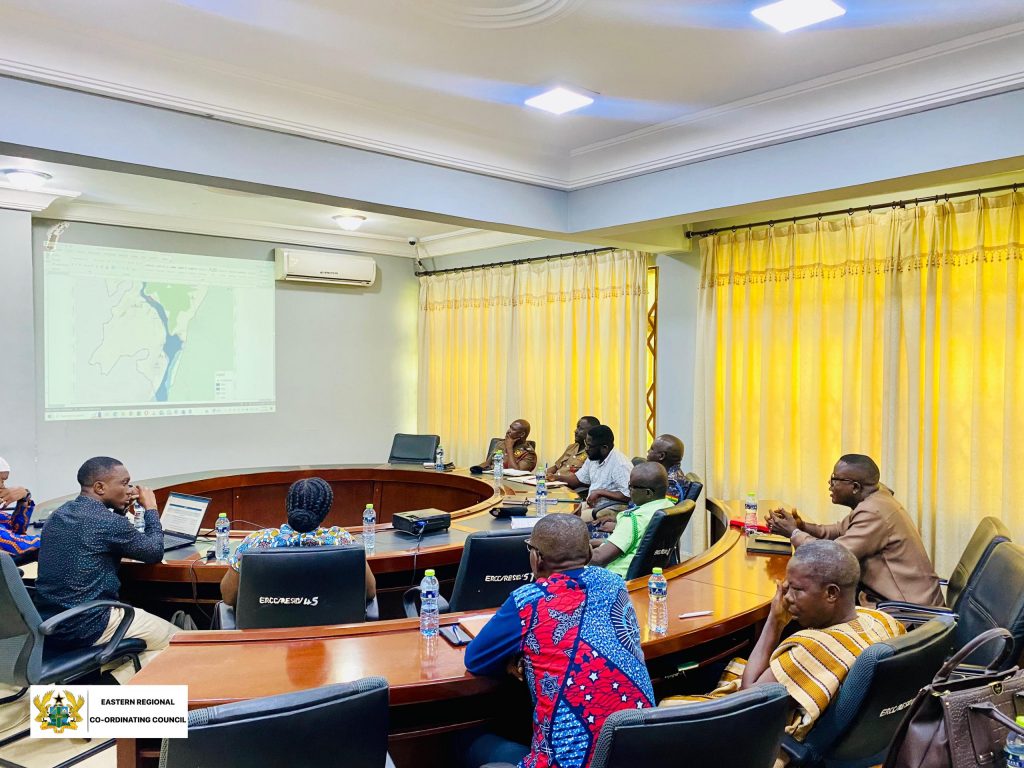
NADMO shared best practices on operational readiness, emphasizing the importance of rapid response teams and effective communication strategies during emergencies. As discussions progressed, participants collaboratively drafted a Regional Flood Contingency Plan, which will serve as a framework for coordinating responses to flood incidents across the region. This plan would ensure that all agencies involved are aligned and prepared to act swiftly in the face of future flooding events.
Commitment to Action
Concluding the workshop, Hon. Seth Kwame Acheampong reaffirmed the ERCC’s commitment to supporting the ongoing development and refinement of the contingency plan. He emphasized the importance of maintaining engagement with all stakeholders, stating, “Our collective efforts will determine how well we respond to flooding disasters. It is crucial that we remain committed to this cause and ensure that our communities are safeguarded.”
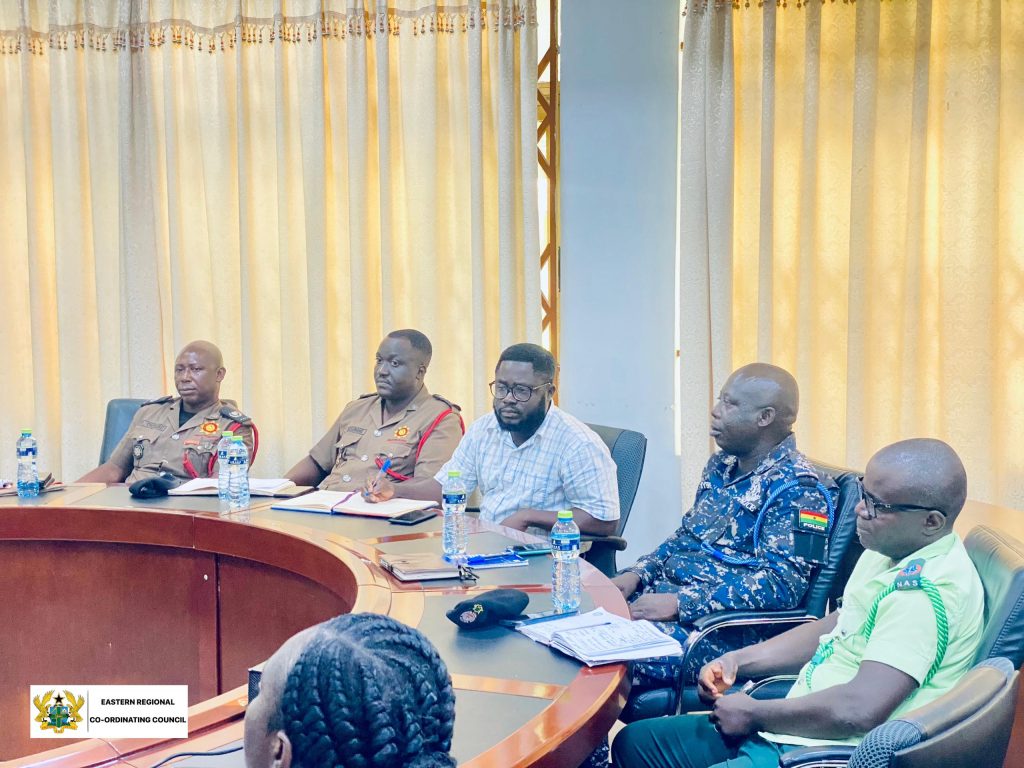
As the rainy season approaches, the Eastern Regional Coordinating Council remains dedicated to collaborating with NADMO, WHO, and all relevant stakeholders to finalize the contingency plan, conduct simulation exercises, and educate the public on disaster preparedness measures. The leadership of the ERCC expressed heartfelt gratitude to NADMO, WHO, and all participating institutions for their contributions toward enhancing the region’s disaster response capabilities.
This workshop not only marked a significant step in improving flood preparedness in the Eastern Region but also reinforced the notion that effective disaster management is a shared responsibility that requires the active involvement of all stakeholders.

